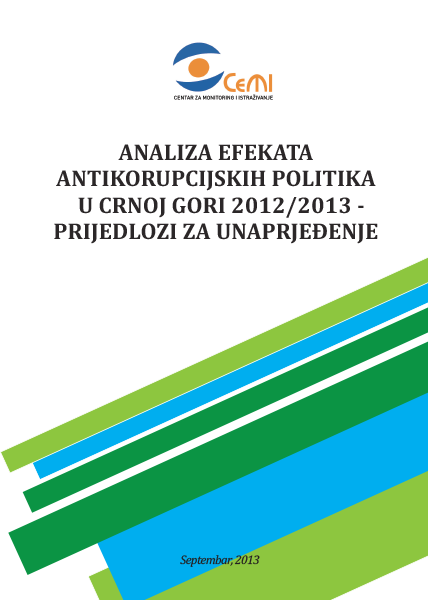This study comprises three sections: political corruption, economic corruption, and corruption prevention and integrity. Political corruption, as defined in this study, pertains to the exploitation of a political position for personal gain. Within this realm, our focus was on policies governing political party financing, conflicts of interest, and the control mechanisms employed by the Parliament of Montenegro to combat corruption. The second section delves into economic corruption, namely corruption in the formulation and execution of the state budget. Here, we examined sectors such as public finance, public procurement, the capital market, and state-owned property. The third section examines preventive mechanisms and integrity-building measures, including free access to information, protection for whistleblowers, ethical codes, and integrity plans.
In each of these sections, we analyzed the features of the legal and institutional framework, documenting any legislative and institutional changes over the past year, the outcomes of these changes, and any shortcomings observed in their implementation. Through this approach, we conducted a qualitative assessment of the degree to which the measures outlined in the Action Plan for combating corruption and organized crime have been fulfilled, while also identifying key obstacles to effective corruption prevention and suppression. Within each domain, we provided a set of recommendations for improvement, encompassing specific interventions in the legislative or institutional framework, as well as more stringent implementation of existing mechanisms.
